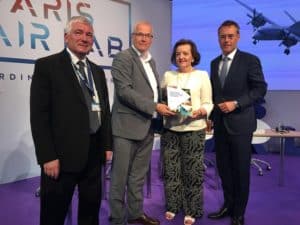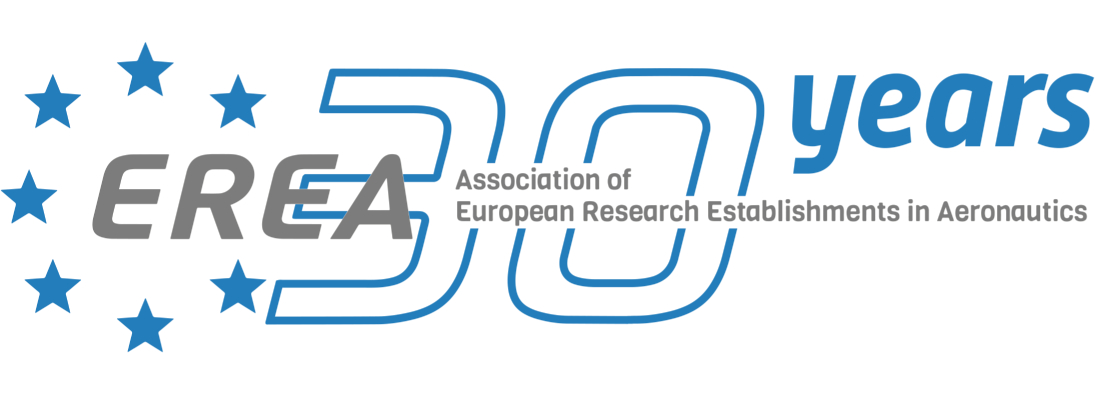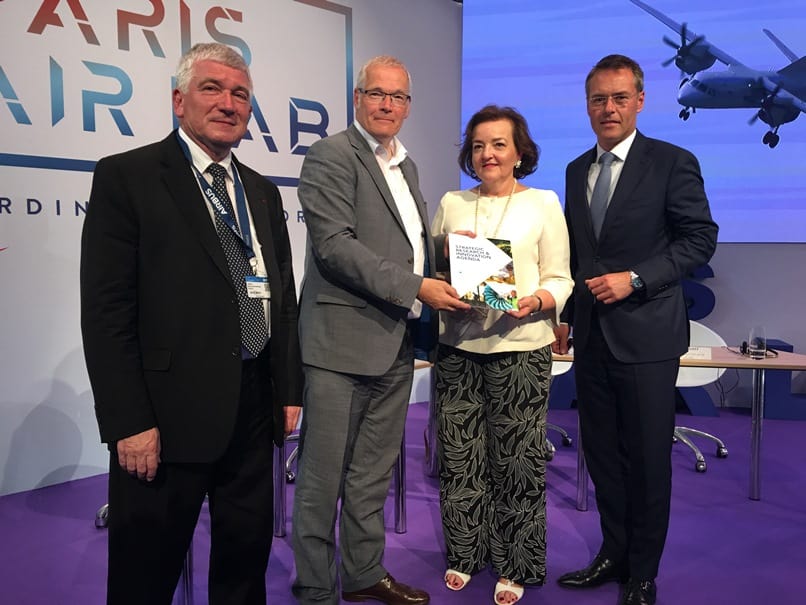Delivering Europe’s Vision for Aviation
On the 21st of June 2017 the Advisory Council for Aviation Research and Innovation in Europe (ACARE) on behalf of its aviation stakeholders throughout Europe launched the updated Strategic Research and Innovation Agenda (SRIA) to guide the future direction of public and private research towards the achievement of the ‘Flightpath 2050’ Vision.
The Association of European Research Establishments in Aeronautics (EREA) welcomes the new SRIA, as it sets the strategic roadmap for aviation research, development and innovation. This roadmap provides a guide to future actions in public and private funding programmes, and in particular to the EREA institutional program actions tackled within the EREA Future Sky initiative. Thus the SRIA and related research programs will ensure that research will meet the societal and market needs while maintaining and extending Europe’s industrial leadership in this sector.
“The implementation of the SRIA in the future FP9 should address all TRLs, balance top down and bottom up research and provide sustainable support.” Bruno Sainjon, EREA Chairman, commented.
Today Europe is a world leader in aviation. The SRIA represents a vital contribution to maintaining and expanding this excellence in the future and provides guidance on the research, development and innovation needed to deliver the Flightpath 2050 vision.
A number of external factors and boundary conditions in air transport within Europe have changed since 2012 when the first SRIA was launched. The SRIA ‘Action Areas’ have been modified to address these changes including: developments in digitalisation and big data; new mobility concepts including remotely piloted air systems (RPAS); increased competitiveness challenges for EU stakeholders; recent security threats where they may affect research, innovation or policy; cybersecurity threats; increased concerns over the health effect of small particulates emissions; and new technologies.
The launch was welcomed by international high-level dignitaries from governments, industry, research establishments, universities and media. The announcement was endorsed by:
- Prof Rolf Henke, DLR, Chair ACARE
- Clara De La Torre, Director Transport, DG-RTD, European Commission
- Michel Wachenheim, Airbus, Vice-Chair ACARE
- Rene de Groot, KLM, Vice-Chair ACARE
Prof Henke said “Aviation sets the pace of a global community where the need for fast and safe transport, combined with challenging environmental requirements, has advanced the European aviation sector towards world-leading technology in many fields. The updated SRIA provides the roadmap towards the best system performance with minimum negative effect. However, achieving these ambitious goals will require extensive research and with long-term commitment.”
The updated Strategic Research and Innovation Agenda (SRIA) paves the way for the challenging objectives in aviation which were set out in the European Commission’s document ‘Flightpath 2050’ in March 2011.
Examples of these goals include:
- A reduction of 75% in CO2, 90% in NOx and 65% in noise by 2050 relative to 2000.
- 90% of travelers within Europe able to complete their journey, door to door, within 4 hours.
- Europe is established as a centre of excellence in sustainable alternative fuels.
- An air traffic management system to handle 25 million flights per year.
- The European air transport system has less than one accident per ten million commercial aircraft flights
- Efficient boarding and security checks allow seamless security.
- Europe is established as a leading centre of sustainable aviation research, development and manufacture
The Strategic Research and Innovation Agenda (SRIA) provides guidance on the research and innovation actions needed to deliver the ‘Flightpath 2050’ vision and will account both for the evolution of technology and for radical solutions or step changes. It also sets out policy directions for European aviation companies to sustain a worldwide competitive position. It will guide and support future actions in public and private funding programmes towards the vision, including future Framework Programmes for Research in Europe and at a national level.
About ACARE
ACARE is the Advisory Council for Aviation Research and Innovation in Europe. It provides strategic, technical and institutional guidance (based on an open forum for discussion and a consensus-based decision-making process) to the European Commission, Member States and its stakeholders.
Launched at the Paris Airshow in June 2001, ACARE has over 50 member bodies and associations including the European Commission, EU Member States, manufacturing industry, airlines, airports, air navigation service providers, EASA, Eurocontrol, research establishments and universities. Significant progress has been made since 2000: new aircraft designs are quieter and burn less fuel per passenger kilometre which means less emission.
Visit the new ACARE website
Media Contacts
| ACARE Communications Group | DLR |
| Dr Naresh Kumar | Dr Uwe Moeller |
| +44(0)1332 248850 | +32(0)2500 0842 |
| naresh.kumar@rolls-royce.com | uwe.moeller@dlr.de |
Picture from left: Michel Wachenheim, Prof Rolf Henke, Clara de la Torre, René de Groot at the Paris Air Show, 21 June 2017.



